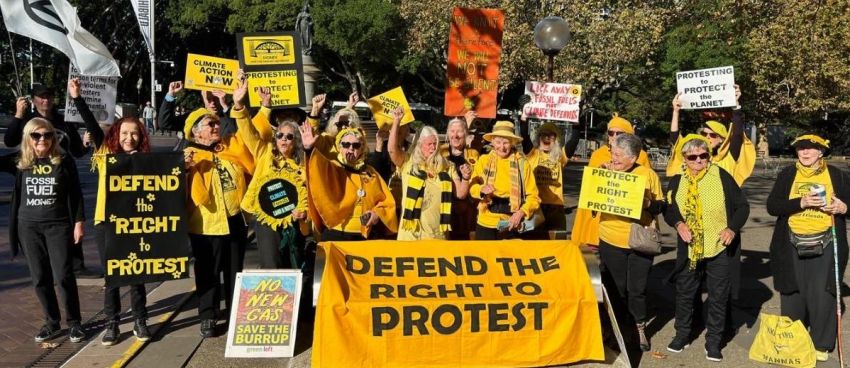
Parts of NSW’s harsh anti-protest laws have been declared unconstitutional by the NSW Supreme Court.
The court ruled on December 13 that criminalising activities that cause partial closures or redirections around ports and train stations was constitutionally invalid in a case brought by Knitting Nannas Dominique Jacobs and Helen Kvelde.
Jacobs and Kvelde were represented by the Environmental Defenders Office (EDO).
The laws were introduced after climate protests at Port Botany caused disruptions. Jacobs and Kvelde had participated in those.
The EDO lawyers argued that the anti-protest laws “impermissibly burdened the implied freedom of political communication” in the Constitution.
The EDO launched a constitutional challenge to section 214A of the Crimes Act 1900, which criminalised remaining “near” any part of a “major facility” (such as Martin Place Station) if that conduct “causes persons attempting to use the major facility to be redirected”.
The activists argued that amendments to the Roads Regulation 2018 that altered the definition of “major bridge, tunnel or road” under section 144G of the Roads Act 1993 went beyond regulation-making power and therefore invalid.
Justice Michael Walton said the anti-protest laws which criminalise protests around ports, train stations, ferry terminals, airports, power stations, steel works and oil terminals — were partially invalid.
He did rule that if disruption damaged the facility, obstructed people trying to use it or led to it being closed completely, then it was an offence.
Walton said the law could not criminalise activities which led to a major facility being partially closed, or which meant that people trying to use it had to be redirected.
Kvelde said she was happy the court had given “some acknowledgement to the democratic right to protest”.
She said the laws are about preventing people from “getting angry” at the climate culprits — politicians who have failed to protect us from the climate emergency.